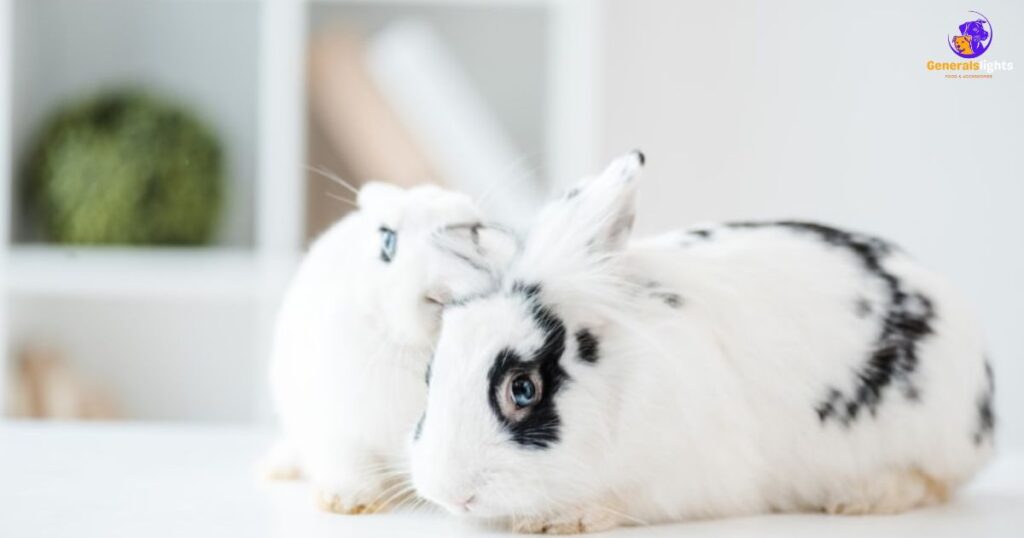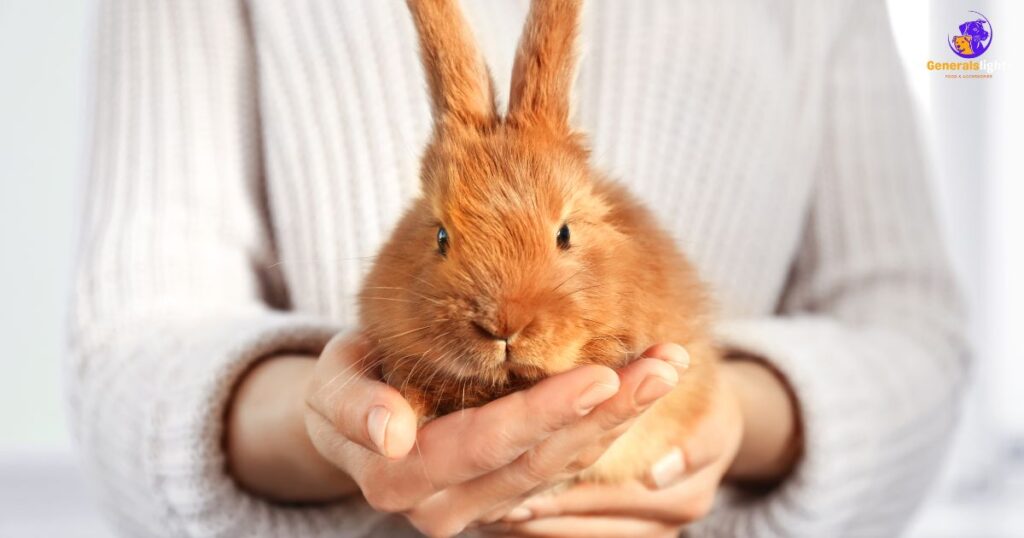Adopting a bunny means taking in a small, furry friend who’s calm, affectionate, and easy to care for. Bunnies are great for families or solo owners who want a gentle pet.
Ever considered adopting a pet? Adopting a bunny might be the best choice! These lovable animals are great for apartments, are low maintenance, and are full of personality. Plus, they’re easy to litter train, making them a perfect indoor pet.
Adopting a bunny offers a unique opportunity to care for a quiet, adorable companion. Bunnies are perfect for small homes or apartments, and they require much less space than dogs or cats. With proper care, adopting a bunny brings long-term joy and a loyal, low-maintenance friend into your life.
Why Adopting a Bunny is a Great Choice
Adopting a bunny brings joy and companionship into your life. Bunnies are affectionate, gentle creatures that bond well with their owners. They’re also quiet and don’t require much space, making them perfect for apartments.

When you adopt a bunny, you’re also giving a rescue animal a second chance. Many rabbits in shelters need loving homes. By adopting, you support animal welfare and make a positive impact on the lives of these animals.
Benefits of Adopting a Bunny
| Benefit | Why It Matters |
| Companionship | Bunnies form strong bonds with owners. |
| Low-Maintenance Pet | Easier to care for than dogs or cats. |
| Space-Friendly | Ideal for small living spaces. |
| Animal Rescue | Helps reduce overpopulation in shelters. |
| Quiet and Peaceful | Rabbits make little noise, perfect for quiet environments. |
Bunnies Are Low-Maintenance Pets
When you adopt a bunny, you get a pet that doesn’t require constant supervision or a lot of daily upkeep. Bunnies are content with a simple routine of fresh hay, water, and occasional veggies. They don’t need frequent grooming or walking like other pets, making them ideal for busy owners.
In addition to being independent, adopting a bunny offers you a quiet companion. They’re generally calm, clean animals that are easy to litter train. With proper care and attention, a bunny can easily adapt to your lifestyle, providing companionship without high maintenance.
Reasons Why You Should Adopt a Bunny:
- Adopting a bunny means less time spent on pet care.
- Bunnies are low-maintenance pets that don’t need daily walks.
- You can adopt a bunny and enjoy a quiet, independent pet.
- Bunnies can be litter trained, reducing mess in your home.
- They require minimal grooming compared to cats or dogs.
- Fresh hay and water are the key essentials for their care.
- Bunnies thrive in calm environments and are great for apartments.
- They don’t need as much space as other pets, making them easy to manage.
- Their quiet nature ensures a peaceful home environment.
- Adopting a bunny provides a loving pet without overwhelming responsibilities.
What you need to know before adopting rabbits
Adopting a bunny is a joyful experience, but it’s important to understand their specific needs. Unlike other pets, rabbits have unique dietary and living requirements. They need regular interaction and plenty of space to hop around. Before adopting a bunny, make sure you’re ready for the responsibility.

Rabbit Care Essentials
| Essential Item | Why It’s Important | Example Products | Cost Range |
| Large Cage/Playpen | Rabbits need space to move freely | Metal wire playpens, spacious cages | $50 – $200 |
| Quality Hay | A primary diet supports digestion | Timothy hay, orchard grass | $10 – $30/month |
| Fresh Vegetables | Provides nutrients | Leafy greens, carrots, parsley | $20 – $50/month |
| Litter Box | For proper indoor hygiene | Corner litter boxes, newspaper pellet litters | $15 – $40 |
Before you decide to adopt a bunny, consider the time and care it requires. Rabbits live up to 10 years and need regular vet visits, exercise, and interaction. You’ll also need to bunny-proof your home to prevent them from chewing on cords or furniture. Unlike what some may think, rabbits aren’t low-maintenance pets—they need a dedicated owner to thrive.
Common Rabbit Misconceptions vs. Reality
| Misconception | Reality |
| “Rabbits are fine in small cages all day.” | Rabbits need daily exercise and space to roam. |
| “Rabbits are easy to care for, like hamsters.” | They require specific diets and regular vet check-ups. |
| “Rabbits don’t need much attention.” | They are social animals that love interaction. |
| “You can feed them just carrots.” | Their main diet should consist of hay and leafy greens. |
By understanding the commitment involved, you’ll be ready to adopt a bunny with confidence. Creating a proper environment, including a spacious living area, nutritious food, and social engagement, will ensure your rabbit leads a happy and healthy life. Adopting a bunny can be one of the best decisions you’ll make when you’re fully prepared.
Rabbits Are Great Pets for Small Quarters Like an Apartment
If you live in an apartment, adopting a bunny could be the perfect choice. Rabbits don’t need much space, and they’re quiet, making them ideal for close quarters. With a cozy setup, bunnies can thrive in smaller environments, like a one-bedroom apartment.
Rabbits Live a Long Time = Long-Term Commitment
When you adopt a bunny, you’re making a long-term commitment. Rabbits can live up to 10 years, so be prepared for years of care, attention, and companionship. It’s important to know that owning a rabbit means committing to their health and well-being for a significant period.
Lifespan and Long-Term Rabbit Care
| Factor | Why It’s Important |
| Lifespan of 8-12 years | Bunnies need a long-term, stable home. |
| Veterinary Care | Regular checkups for their health are essential. |
| Emotional Bonding | Rabbits grow attached and require consistent care. |
| Commitment to Diet | Maintaining a balanced, high-fiber diet for life. |
Rabbits Are Social Creatures
Rabbits thrive on interaction and enjoy spending time with their owners. They’re social animals that need attention and engagement to stay happy. Adopting a bunny means creating a bond through play and affection, making them excellent companions.
Rabbits Need a Large Space and/or Free Roam with Daily Exercise
Although rabbits can live in small spaces, they still need plenty of room to move. Adopting a bunny requires providing space for exercise, whether that’s free-roaming in a room or a large pen. Daily physical activity is essential for their well-being.
Rabbits Need a High-Fiber Diet to Stay Healthy
A rabbit’s primary diet consists of high-fiber foods like hay. It’s important to provide plenty of fresh hay daily to ensure proper digestion. Adopting a bunny means committing to a diet rich in fiber, including fresh vegetables and hay, to keep your rabbit healthy.
Rabbits Need Regular Veterinary Care
Just like any other pet, rabbits need routine veterinary checkups. Regular visits help prevent common health issues and ensure they live a long, healthy life. When you adopt a bunny, be ready to schedule annual vet visits to maintain their well-being.
Bunnies Offer Great Companionship
When you adopt a bunny, you’re bringing a loving and social companion into your life. Bunnies thrive on interaction and form strong bonds with their owners. They enjoy spending time with you, whether it’s during playtime or just cuddling on the couch. Adopting a bunny means having a loyal pet that will always be by your side.
Unlike other pets, rabbits are naturally quiet and calm, making them perfect for peaceful households. They’re affectionate and will seek out attention when they feel comfortable. Adopting a bunny allows you to experience a unique kind of companionship that’s both gentle and rewarding.
- Adopting a bunny gives you a loving, social pet that enjoys interaction.
- Bunnies form strong emotional bonds with their owners.
- Bunnies offer great companionship in quiet, peaceful environments.
- They are gentle and affectionate, making them perfect for anyone seeking a calm, loyal companion.
How to Prepare Your Home for a Bunny
Preparing your home for a bunny is essential to ensure a safe and comfortable environment. Start by creating a designated space where your new pet can feel secure and relaxed. This area should include a cozy bed, litter box, and toys to keep them entertained. By adopting a bunny, you’re committing to providing a loving home that meets their needs.

Next, bunny-proof your living space to keep your pet safe from hazards. Remove any toxic plants, electrical cords, or small items that they could chew on. Consider using barriers to restrict access to areas that could be dangerous. When you adopt a bunny, ensuring their safety is a top priority, so take the time to prepare your home properly.
Designating a Safe Space
Designating a safe space is crucial when you adopt a bunny. Choose a quiet area away from noise and foot traffic where your bunny can retreat. This space should include a comfortable bed and a litter box for easy access. Make it cozy with blankets and a few favorite toys to encourage relaxation.
Bunny-Proofing Your Home
Bunny-proofing your home is a vital step in preparing for your new pet. Start by removing any items that could pose a risk, such as electrical cords and small objects they might swallow. Secure or cover toxic plants to prevent accidental ingestion. When you adopt a bunny, taking these precautions ensures a safe environment for exploration.
Providing Proper Bedding
Choosing the right bedding is important when you adopt a bunny. Use soft, absorbent materials like hay or straw in their designated area for comfort. Avoid cedar or pine shavings, as they can be harmful to rabbits. A clean and cozy bedding area promotes health and happiness for your furry friend.
Setting Up a Litter Box
Setting up a litter box is a key part of preparing your home for a bunny. Place it in the area where your bunny spends most of their time for easy access. Fill it with rabbit-safe litter to encourage them to use it. When you adopt a bunny, teaching them to use a litter box helps maintain a clean living space.
Creating a Play Area
Creating a play area is essential when you adopt a bunny. Designate a space where they can safely explore and exercise. Use tunnels, toys, and soft mats to make it inviting and fun. Regular playtime keeps your bunny active and mentally stimulated, contributing to their overall well-being.
Ensuring Fresh Food and Water
Ensuring fresh food and water is crucial when you adopt a bunny. Provide a constant supply of clean water in a heavy bowl to prevent spills. Offer fresh hay and vegetables daily to maintain their health. A well-nourished bunny is a happy bunny, so prioritize their dietary needs.
Common Misconceptions About Bunnies
Many people hold misconceptions about bunnies, leading to misunderstandings about their care and needs. One common belief is that rabbits are low-maintenance pets requiring little attention. In reality, when you adopt a bunny, you must commit to providing daily care, social interaction, and a proper diet.
Another prevalent myth is that bunnies can thrive solely on carrots or pellets. While these foods are enjoyable treats, their primary diet should consist of hay, fresh vegetables, and clean water. When you adopt a bunny, understanding these dietary needs is crucial for ensuring their long-term health and happiness.
Bunnies Are Low-Maintenance Pets
Many people mistakenly believe that bunnies are low-maintenance pets. In reality, when you adopt a bunny, you quickly realize they require daily attention and care. Rabbits need a clean living environment, regular feeding, and social interaction to thrive. Neglecting these needs can lead to behavioral issues and health problems. Therefore, it’s essential to recognize that adopting a bunny involves more than just bringing them home.
Bunnies Can Live on Carrots Alone
Another common misconception is that bunnies can survive on a diet of carrots. When you adopt a bunny, you learn that their diet should primarily consist of hay, which is vital for their digestive health. Carrots can be offered as occasional treats, but they shouldn’t be the mainstay of their nutrition. Proper nutrition is key to keeping your bunny healthy and happy. Educating yourself about the right foods will ensure your bunny thrives after adopting a bunny.
Bunnies Don’t Need Socialization
Some people think bunnies are solitary animals that don’t require social interaction. However, when you adopt a bunny, you discover they are highly social creatures that thrive on companionship. Spending time with your bunny helps build trust and emotional bonds. Engaging in playtime and gentle handling can prevent loneliness and stress. Understanding this need for socialization is vital for any responsible pet owner after adopting a bunny.
Bunnies Are Like Other Small Pets
Many assume that bunnies behave like other small pets, such as hamsters or gerbils. However, when you adopt a bunny, you find that they have unique behaviors and requirements. Rabbits need more space and freedom to explore than many other small animals. They also require mental stimulation to prevent boredom. Recognizing these differences is crucial for ensuring your bunny’s happiness after adopting a bunny.
Indoor Bunnies Can’t Be Litter Trained
A common myth suggests that indoor bunnies cannot be effectively litter-trained. When you adopt a bunny, you’ll find that many rabbits can learn to use a litter box with proper training. Setting up a designated area with rabbit-safe litter encourages good habits. Consistency and patience are key to successful litter training. Creating a clean and comfortable space is essential for your bunny after adopting a bunny.
Bunnies Are Not Good Pets for Children
Some believe that bunnies are unsuitable pets for families with children. However, when you adopt a bunny, you find that they can be great companions for kids with proper guidance. Teaching children how to interact gently and respectfully with their new pets fosters responsibility. Supervised playtime ensures both the bunny and the children remain safe and happy. With the right education, bunnies can thrive in family environments after adopting a bunny.
Adopt Don’t Shop!
Adopt, Don’t Shop! This phrase emphasizes the importance of rescuing pets from shelters instead of purchasing them from breeders or pet stores. By adopting, you give a loving animal a second chance at life while helping to reduce pet overpopulation. Each adoption saves a life and opens up space for another animal in need. Choosing to adopt is a compassionate decision that benefits both the animal and the community.
What Are the Benefits of Adopting a Bunny?
Adopting a bunny provides companionship and joy. They are playful, and affectionate, and can bond closely with their owners.
How Do I Care for My Adopted Bunny?
Caring for a bunny includes providing a balanced diet, a safe space, and daily social interaction. Regular veterinary check-ups are also essential.
Can Bunnies Be Litter Trained?
Yes, bunnies can be litter-trained. With patience and consistency, they can learn to use a designated litter box.
What Do Bunnies Eat?
Bunnies thrive on a diet of hay, fresh vegetables, and water. Avoid feeding them too many treats or processed foods.
How Much Space Do Bunnies Need?
Bunnies need plenty of space to roam and explore. A large enclosure or a free-roaming area in your home is ideal for their well-being.
Conclusion
Moreover, adopting a bunny provides a second chance for a deserving animal. Shelters are often filled with rabbits waiting for a forever home. By adopting, you make a positive impact on your community and offer a bunny a loving environment. With the right preparation and commitment, you can ensure your new furry friend thrives. Remember, adopting a bunny means welcoming a lifelong companion into your home.
- Also Read Must:
- dog-not-eating-or-drinking-what-do-to/
- pet-pride-dog-food-review/

Emerson is an expert in the world of pets, specializing in understanding diverse breeds, nutrition, and health. His deep knowledge ensures your pets receive the best care, from balanced diets to top-notch health advice, keeping them at their happiest and healthiest.











